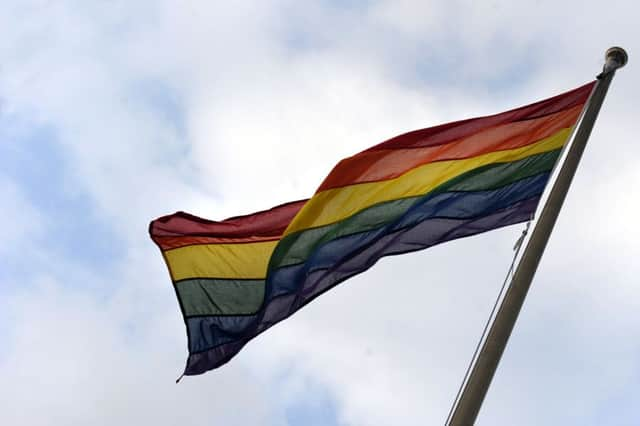Gay hate victims feel isolated in rural villages


Some gay people in villages and rural towns are being relentlessly bullied because of their sexuality, leaving some too scared to leave their homes, the study claims. It suggests hate crime is an “everyday reality” and “part and parcel” of life for many LGBT people.
A total of 321 hate crimes relating to sexual orientation and transgender were recorded by police across Yorkshire in 12 months, the most recently published statistics for 2012/13 show.
Advertisement
Hide AdAdvertisement
Hide AdYet LGBT commentators believe those figures give only a snapshot of the true picture, with many more crimes going unreported because victims fear they will not be taken seriously by police or that they might be ‘outed’ to their families.
Dr Stevie-Jade Hardy, a lecturer at the University of Leicester’s Centre for Hate Studies and author of the new report, said people in rural communities are being left “lonely and isolated with nowhere to turn”.
She said: “There were quite a few who mentioned being targeted by young people in their area. People would graffiti their house or cause criminal damage, young people when they walked down the street would verbally abuse them, call them derogatory names, and often it would start to escalate.
“If something was done about it, then they found that sometimes the instances got worse and those young people were targeting them more frequently.”
Advertisement
Hide AdAdvertisement
Hide AdShe said LGBT people feel they are more likely to be the victim of hate crime if they are “noticeably different”, potentially making those in villages particularly vulnerable.
“Within rural locations those differences are maybe magnified, and so young people will often target someone who they see as being different in that context,” Dr Hardy said.
“It can be really damaging, particularly in the rural locations it tended to be older LGBT people as well. And so there isn’t often that community or that group you can go to access support.
“That was a big issue, just feeling lonely and isolated and that there is nowhere to turn.”
Advertisement
Hide AdAdvertisement
Hide AdDr Hardy believes around 35,000 hate crimes against LGBT people go unreported every year.
Some 4,000 members of the LGBT community took part in the York Pride parade on Saturday.
Greg Stephenson, chairman of the event’s organising committee, said: “I think a lot of people try and shrug off abuse and so it doesn’t get reported.
“The York LGBT Forum is setting up a new helpline to report crime because we have found that people don’t like to go straight to the police, maybe because they feel embarrassed and some people don’t feel comfortable enough to admit they are LGBT.”
Advertisement
Hide AdAdvertisement
Hide AdCouncillor David Chance, cabinet member for stronger communities and public health at North Yorkshire County Council, said the council was working to establish better community support networks.
“There is no excuse for hate crime at all,” Coun Chance said.
“Our stronger communities initiative is working on issues like this, looking at support networks, and we have dedicated workers in each district of North Yorkshire looking at what we can do to help.”
Julia Mulligan, Police and Crime Commissioner for North Yorkshire and chairman of the National Rural Crime Network, said hate crime can have a “profound impact” on individuals and communities.
Advertisement
Hide AdAdvertisement
Hide AdShe said: “Unfortunately, we believe much of it goes unreported so it’s vitally important that people call the police if they feel they are being targeted.”
She said that victims who do not feel comfortable turning to the police in North Yorkshire can contact the Supporting Victims organisations on 01904 669 276.
Mrs Mulligan added: “More widely, we want to help ensure that people concerned about crime living or working in rural areas have their voices heard. To this end, as chair of the National Rural Crime Network, I have launched the biggest ever survey on crime in rural areas. Please complete the survey at www.nationalruralcrimenetwork.net - it’s extremely important we hear from anyone with concerns about crime, policing and the impact on people and their communities.”